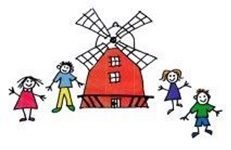Routine and activities
We offer a wide range of activities, covering all aspects of the EYFS Framework, and enjoying the outdoors as much as we can.
The types of activities, both indoor and outdoor, covering all aspects of the EYFS framework. Sessions may be planned around a theme or topic, depending on the time of year, e.g. Christmas, Easter, summer holidays, etc.
These are just some of the activities on offer to the children to freely access as and when:
Playdough – helps develop imaginative play and builds hand strength. Cutters, rolling pins, tools and other objects of interest such as number of letter stamps.
Puzzles – a wide range of puzzles are available, varying in difficulty, to promote hand-eye coordination and dexterity.
Mark-making – coloured pens, wax crayons, chalks, whiteboards, blackboards, pencils, objects to draw around, stencils, a range of paper and colouring sheets.
Floor toys – children love the train sets, cars, Duplo, fire engine and doll’s house.
Library – children select their own books to look at, learning how a book works and to handle books carefully. a range of fact and fiction books are available.
Painting activities – palette paints, painting with different objects (potatoes, shapes, feathers, etc). Children are often encouraged to express themselves without intervention from an adult so the work becomes their own materpiece.
Creative area – this ight be creating collages from a range of textured items, junk modelling or simply letting glue drop onto paper. Also supervised scissor work. Helps develop fine motor control as well as imaginative creation.
Role play area – helps develop imaginative play based on real experiences, e.g. kitchen area, a restaurant, doctors, vets, puppets, dressing up, or just boxes and dens to play with become a car or a boat.
Outside play area – children can play without fantastic sand/mud kitchen, water play, zooming cars and balls down the wall mounted guttering system, musical instruments, the Wendy House, table top and floor activities, and much more.
Physical play – allows the children to develop gross motor skills, become aware of their bodies, and let off steam! This could be music and movement, ball play, tricycles, climbing frame, obstacle course.
Other activities that may be on offer include investigating flubber, shaving foam or clay, baking/cooking, cooperative sculpture, exploring the “science box”, accessing games and age-appropriate activities on the laptop.
